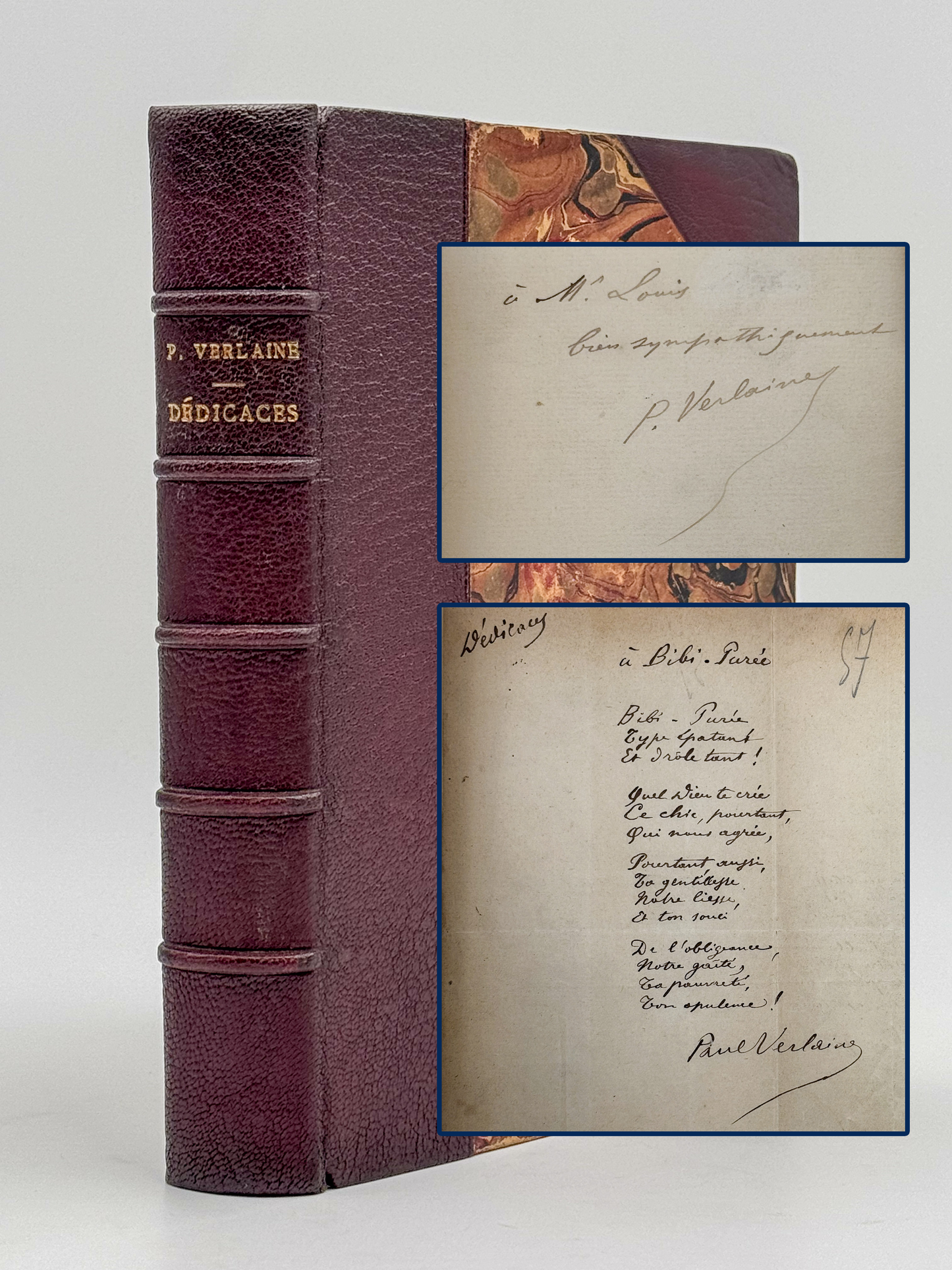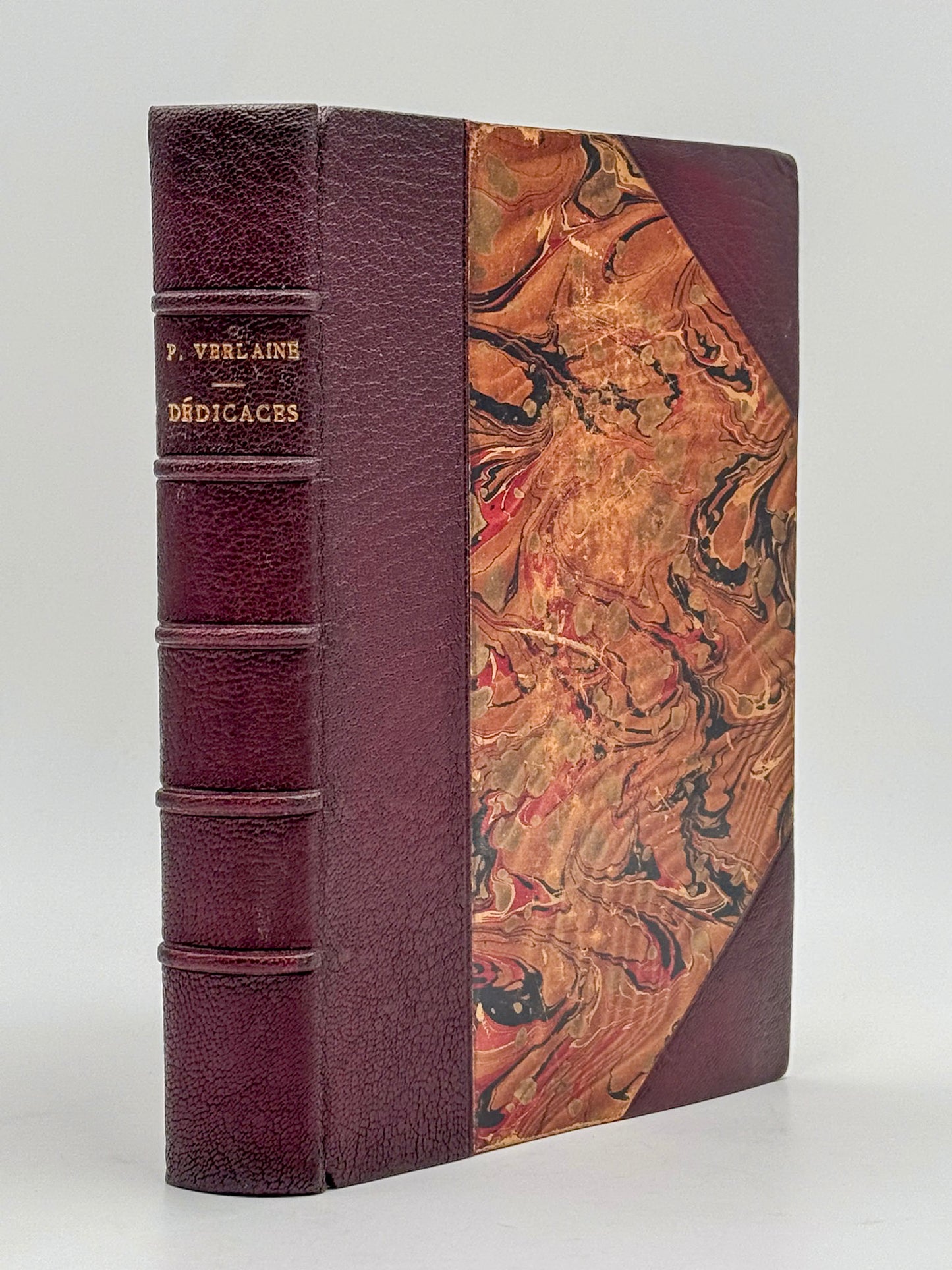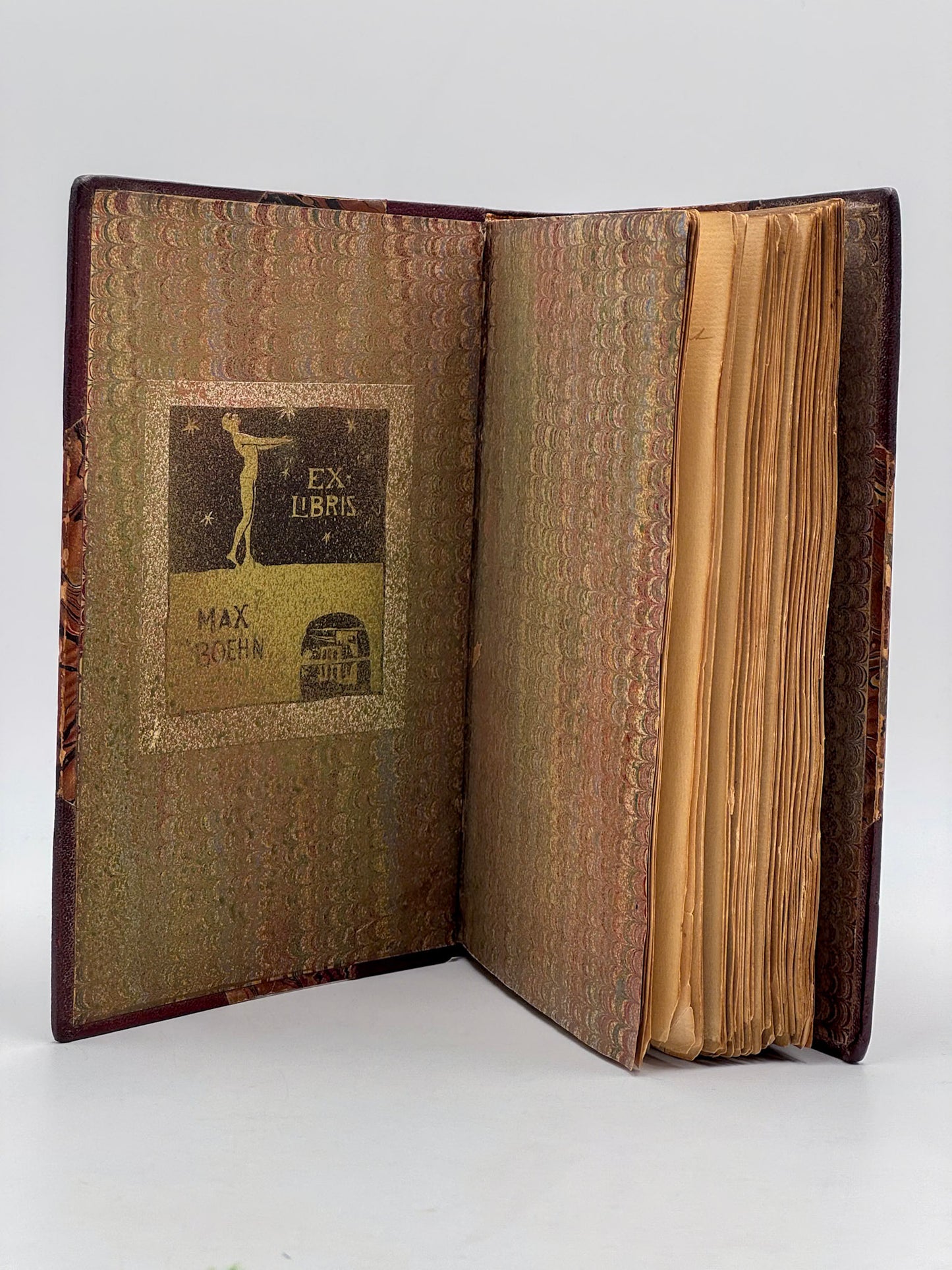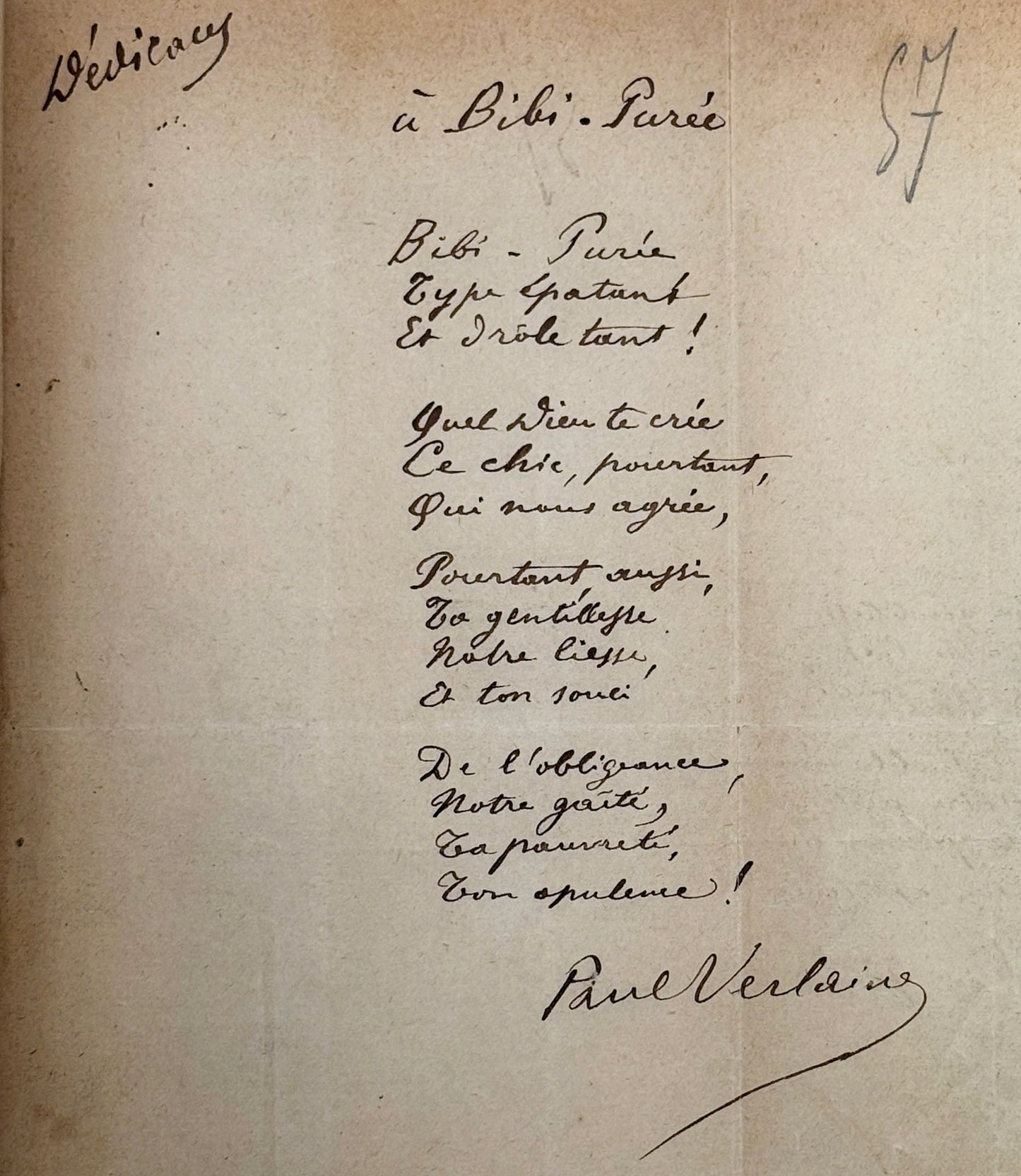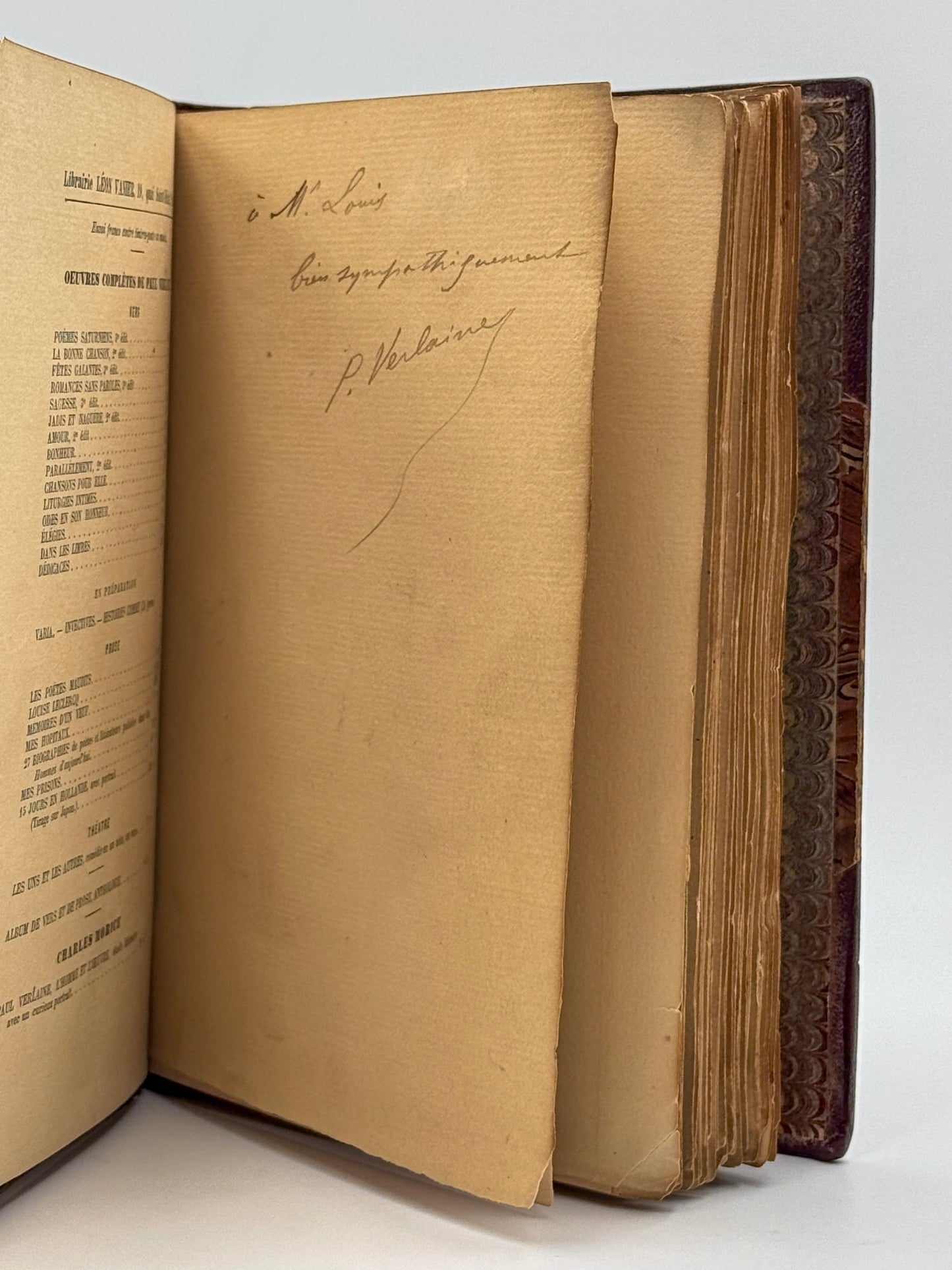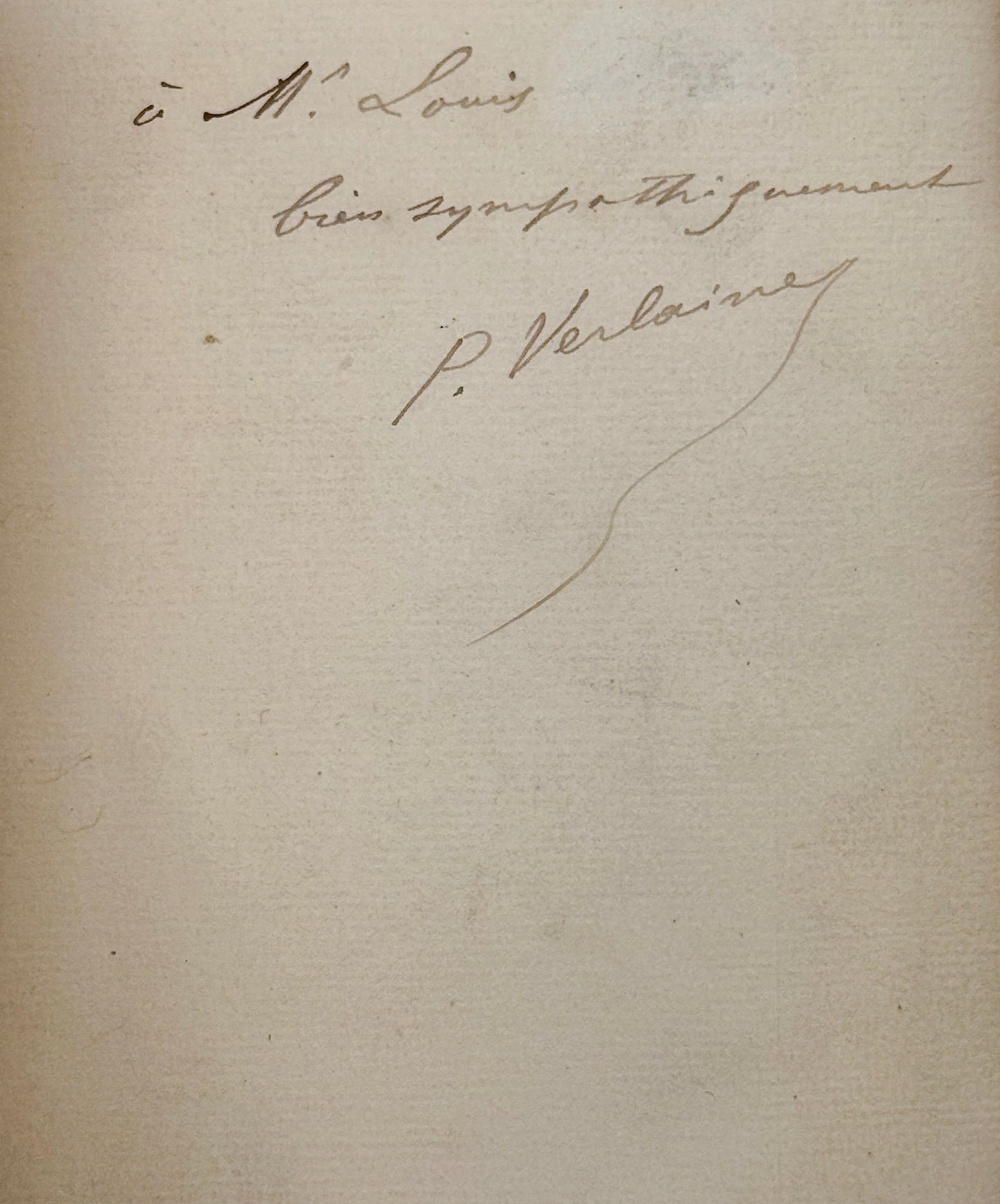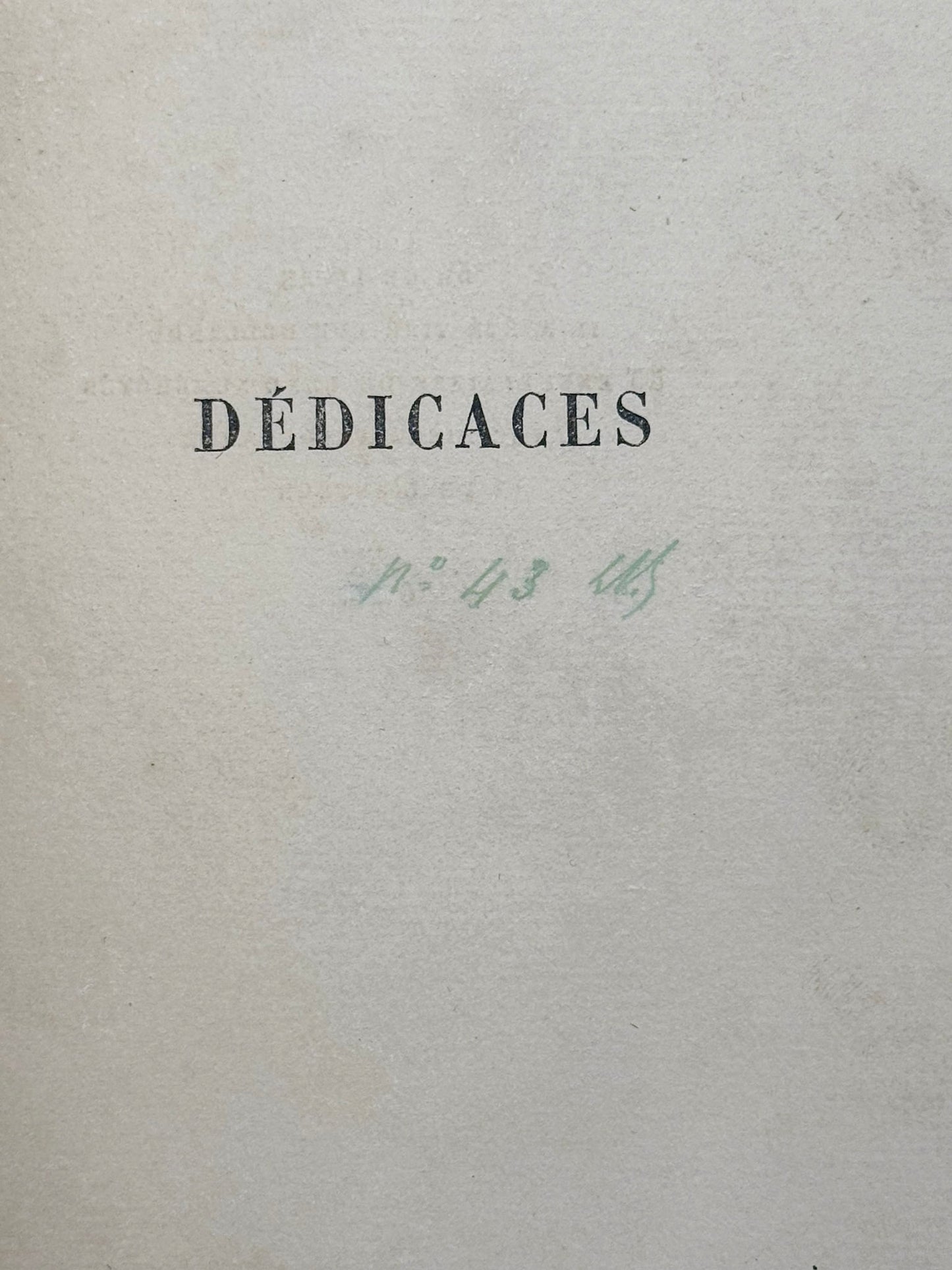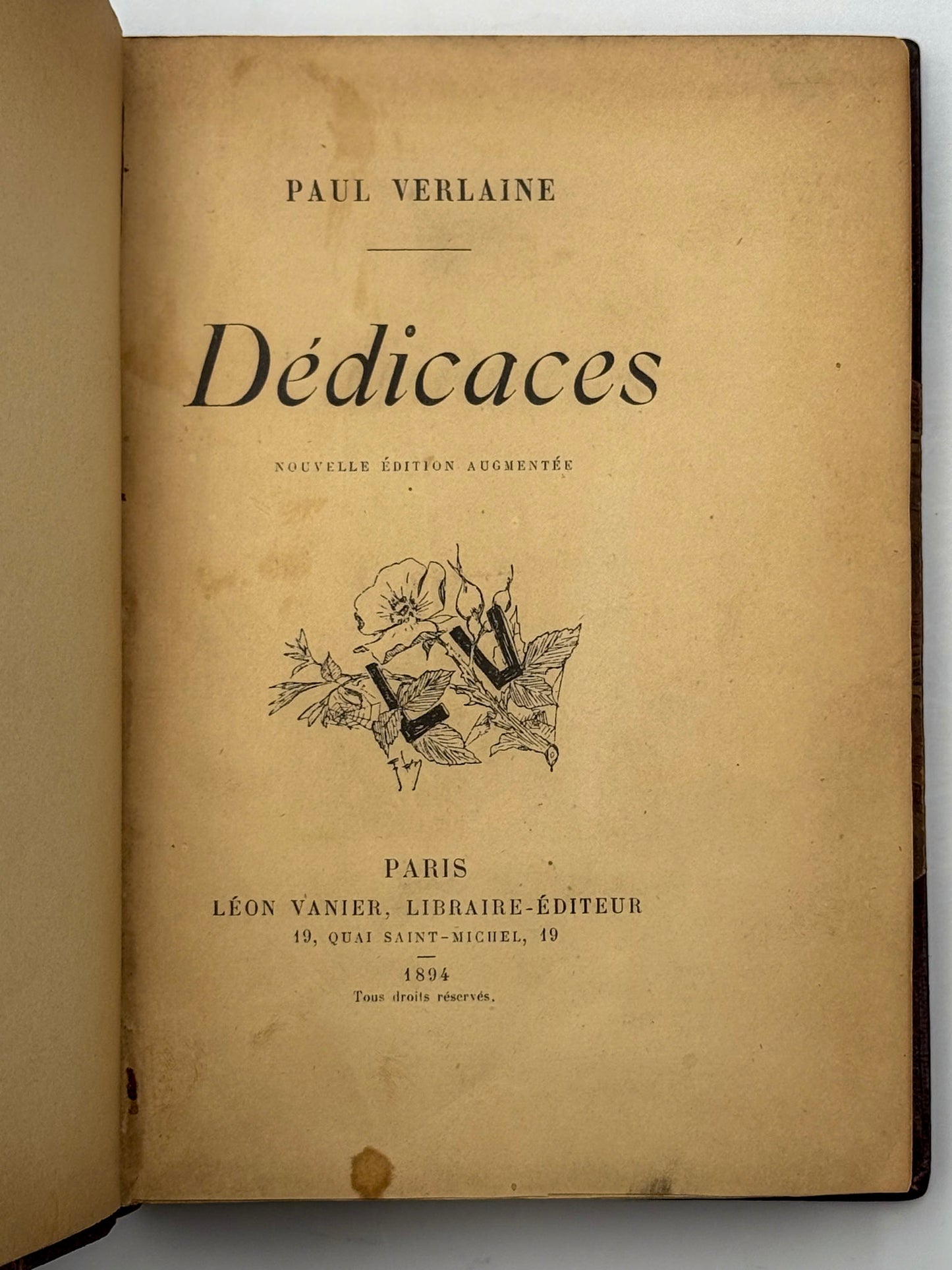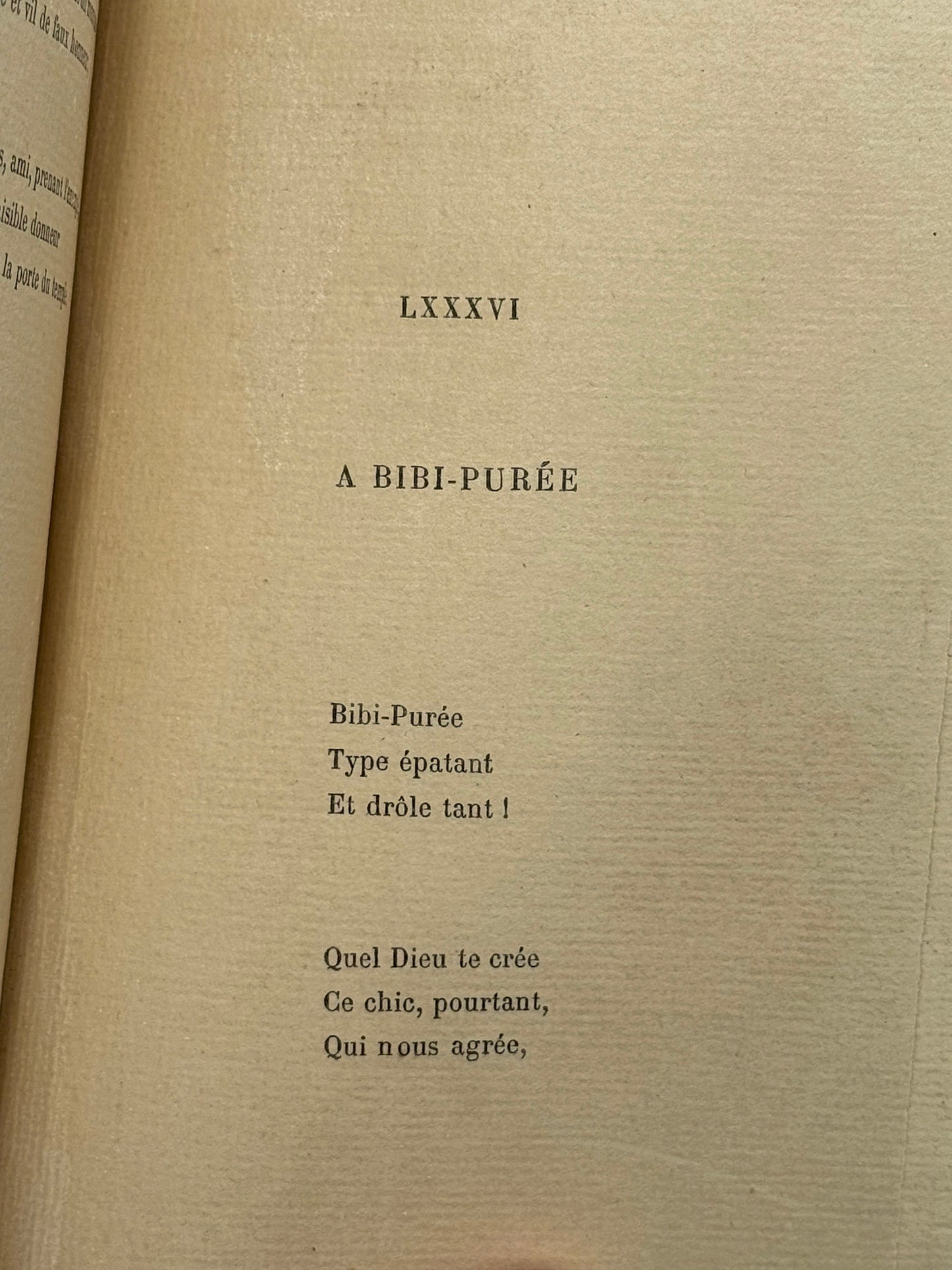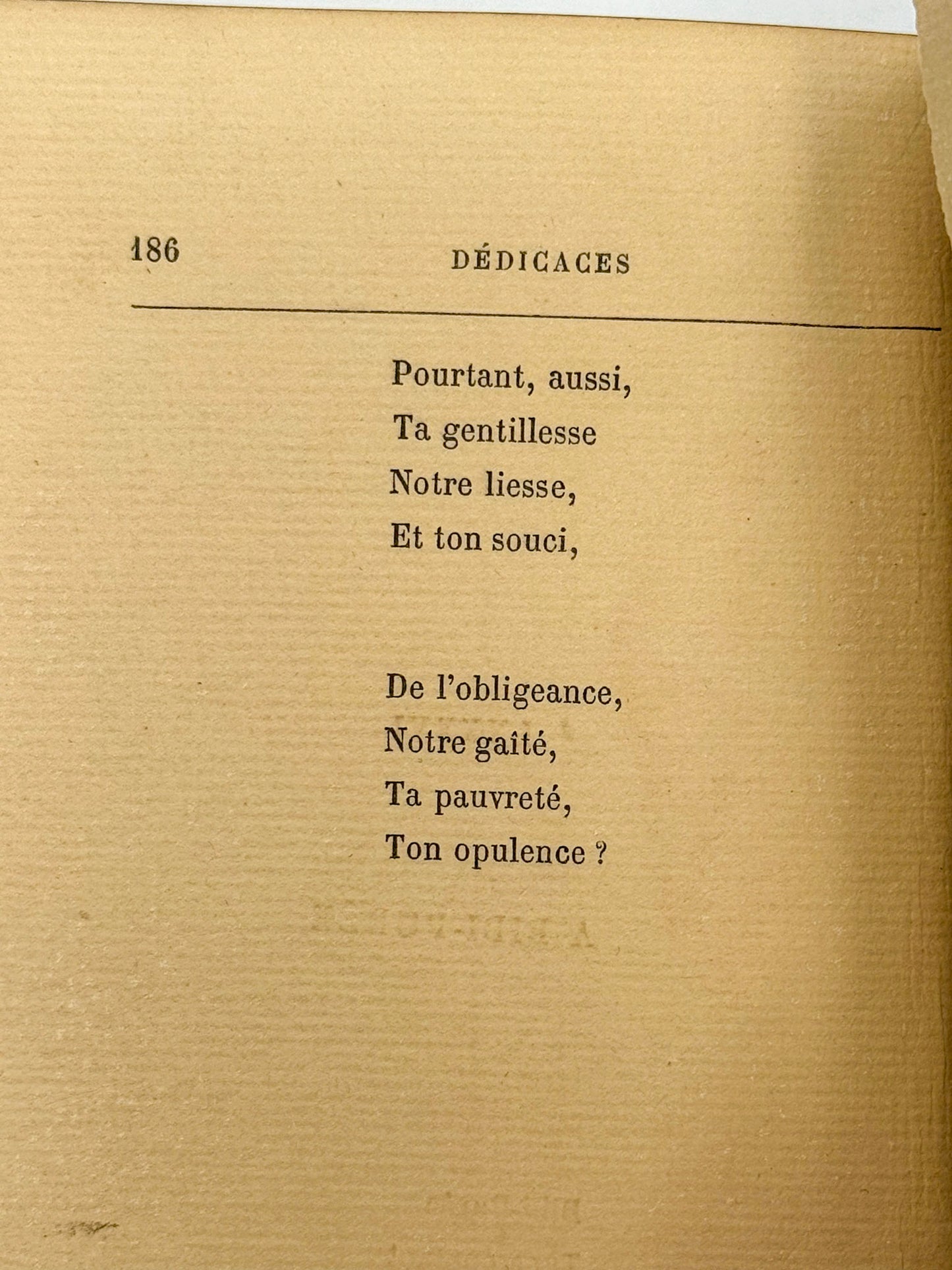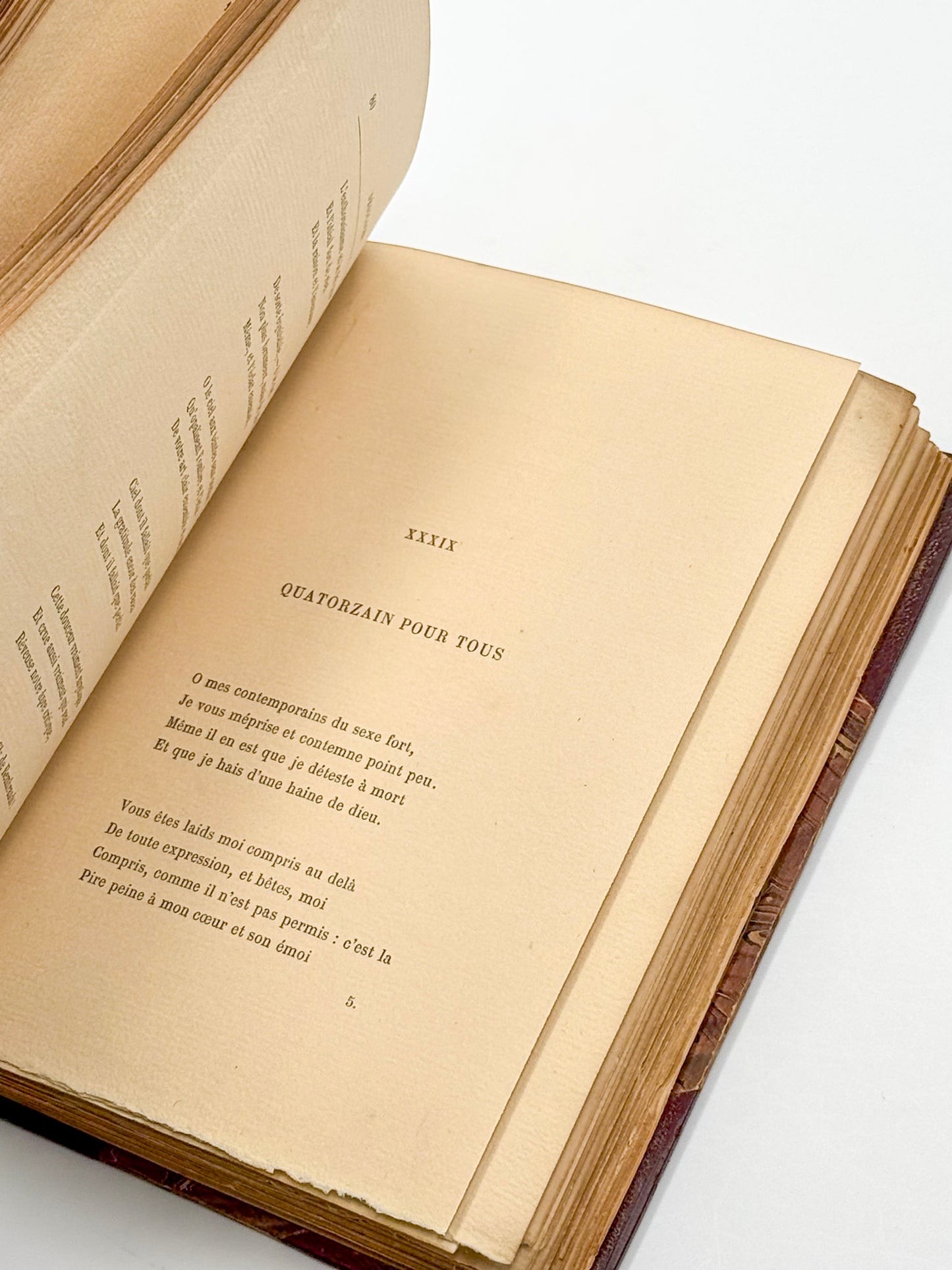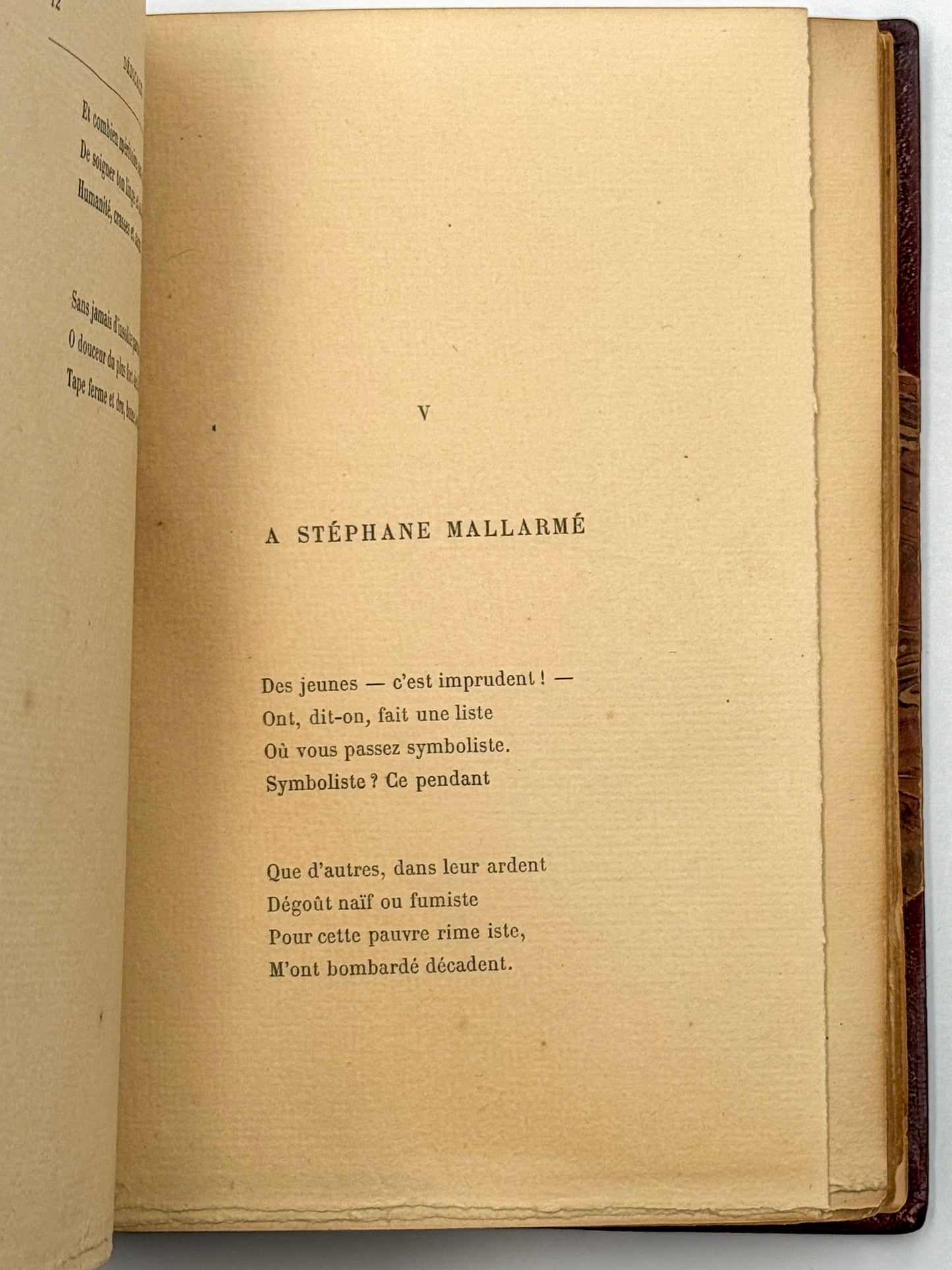Librairie Alexis Noqué
SKU:0642
Vendu
Couldn't load pickup availability
VERLAINE, Paul. Dédicaces.
Paris, Léon Vanier, 1894.
In-8 (188 x 135 mm), (4) ff, 234 pp, (1) f., covers preserved.
Burgundy half-maroquin with corners, spine ribbed, gilt head on witnesses, untrimmed (contemporary binding).
Precious second edition, partly original.
One of the 55 first copies on Hollande, the only ones to contain an autograph poem signed by Verlaine. It is inscribed here to an unidentified Mr Louis.
The copies on Hollande are ‘highly sought after [...] as they all have an autograph poem by the author’ (Clouzot).
The 1894 edition is the first public sale of Dédicaces, the initial 1890 edition having been printed only for the poet's close friends. The present edition is augmented by 71 new pieces, numbered XXXVIII to CV.
The handwritten poem is signed by Verlaine and addressed to Bibi-la-Purée, the pseudonym of André-Joseph Salis (1847-1903), a whimsical figure from the Montmartre bohemian scene. Nicknamed the King of Bohemia, he inspired painters (Picasso, Steinlen, Villon), poets (Verlaine, Jehan Rictus, Léo Farguier) and musicians alike, appearing in Brassens's repertoire. First christened Larbi-la-Purée by Verlaine, then quickly reduced to Bibi, he inspired two films of the same name: the silent film Bibi-la-Purée (Maurice Champreux, 1925), then Léon Joannon's talkie (1935).
He is also immortalised in Paul Fort's verses in L'enterrement de Verlaine :
"N'importe ! Je suivrai toujours, l'âme enivrée
Ah ! Folle d'une espérance désespérée
Montesquiou-Fezensac et Bibi-la-Purée
Vos deux gardes du corps. - entre tous moi dernier."
Bibi was one of Verlaine's last companions, acting in turn as his messenger, confidant, makeshift secretary... and sometimes as a self-serving provocateur. He played a significant role in the tumultuous love affairs of Verlaine's last years, blurring the lines between Eugénie Krantz and Philomène Esther Boudin.
A spy, a matchmaker, a quarrel-maker - and a great umbrella-snatcher - Bibi was ‘usually wearing a top hat [...] lost in improbable frock coats, he could be seen hanging around cafés and bars with his old-fashioned shoes covered, in a fashion to which Bibi has remained faithful, with sordid white gaiters’ (Revue universelle, 1903).
He alone embodies a certain decadent bohemia, between Montmartre and the Latin Quarter, and symbolises Verlain's imagination of transgression and asserted marginality.
Spine restored, title page partially stuck to the false-title page, resulting in a small negligible crack to the latter, tear of a few centimetres on page 187 not affecting the text in any way.
From the library of Max Boehn (1850-1921), his bookplate; a senior German officer who took part in the Franco-Prussian War of 1870 and in the First World War.
Clouzot, 267 ; Vicaire, VII, 996 ; Carteret, II, 428.
Share
